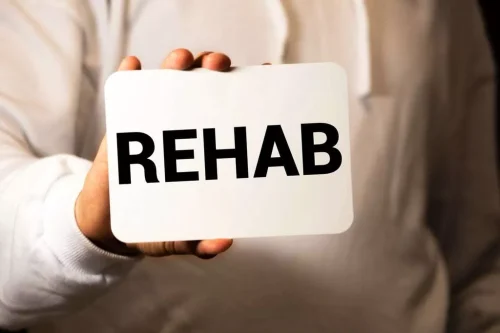
Therapy, support groups, addiction treatment programs, and education about addiction can play crucial roles in rebuilding relationships and fostering healthier connections. The next step in rebuilding trust in recovery is making yourself available (with boundaries!) and becoming more dependable. It helps to start small in this task – don’t dive in headfirst, make a significant promise that you won’t be able to keep, and overwhelm yourself with tons of high-pressure responsibilities.

Why Is Trust Important In Recovery?
Relationship-building skills in recovery are a series of interpersonal abilities to restore and foster relationships impacted by addiction. These may consist of demonstrating consistent reliability, healthily expressing emotions, listening with empathy, communicating honestly, and respecting boundaries. It can lead to dependence through repetitive rebuilding your life after addiction cognitive, behavioral, and physiological symptoms. Coping with addiction is an incredibly difficult struggle that can consume a person’s existence. The recovery journey can be difficult, but talking with your addicted loved one again is worth the struggle. Join me on this exploration to find hope, foster healing, and reignite connection.

Be willing to work on rebuilding the trust.
Rebuilding trust takes time, and it’s essential to be patient and understanding throughout the journey. The individual in recovery may face setbacks, but with continuous support and encouragement, they can work towards regaining trust in their relationships. On the contrary, addiction often affects everyone around it, sometimes wreaking havoc on personal relationships. Rebuilding trust in a friendship requires a great deal of honesty. Having support and friends in recovery can be extremely beneficial to a person’s growth and ability to abstain from drugs or alcohol in the future. Once lies and deceit enter a friendship, it can quickly disintegrate, leaving those involved with a great deal of hurt and frustration.
- One of the essential parts of rebuilding broken relationships after addiction is realizing you probably owe friends or family an apology.
- We tend to focus mostly on romantic and family relationships, but other types of relationships can have a big impact on your recovery efforts as well.
- A good place to start is to ask your friends and family how you can make things right.
- There’s a lot of shame and vulnerability in attempting to recreate relationships with people who have cut us off.
- Instead, give age-appropriate but honest answers and explanations about your addiction.
- The best thing you can do to start fresh and restore fractured relationships is be completely honest.
Accepting That Things Have Changed

Chronic drug and alcohol abuse can damage relationships, and lead to severe emotional pain and unhealthy coping skills, such as enabling. While sobriety can bring significant positive changes to relationships, it’s essential to acknowledge that there can be struggles along the way. Recovery can unearth a variety of issues that individuals may encounter as they navigate their relationships. If you’re struggling to manage these steps on your own, consider reaching out to the mental health and addiction professionals at All Points North. You can reach our team via the live chat function on our website or by filling out our online form.
Relationships present opportunities to practice skills that are essential for addiction recovery.
Individualized Treatment

- Parents, friends, and family must relearn relationships and boundaries that will encourage their recovery and not enable negative habits.
- Unfortunately, that’s not how recovery works, and the start of recovery can be a difficult path to trust, particularly for the people surrounding you.
- Additionally, it helps prevent communication breakdowns or misunderstandings that may result from unclear expectations.
